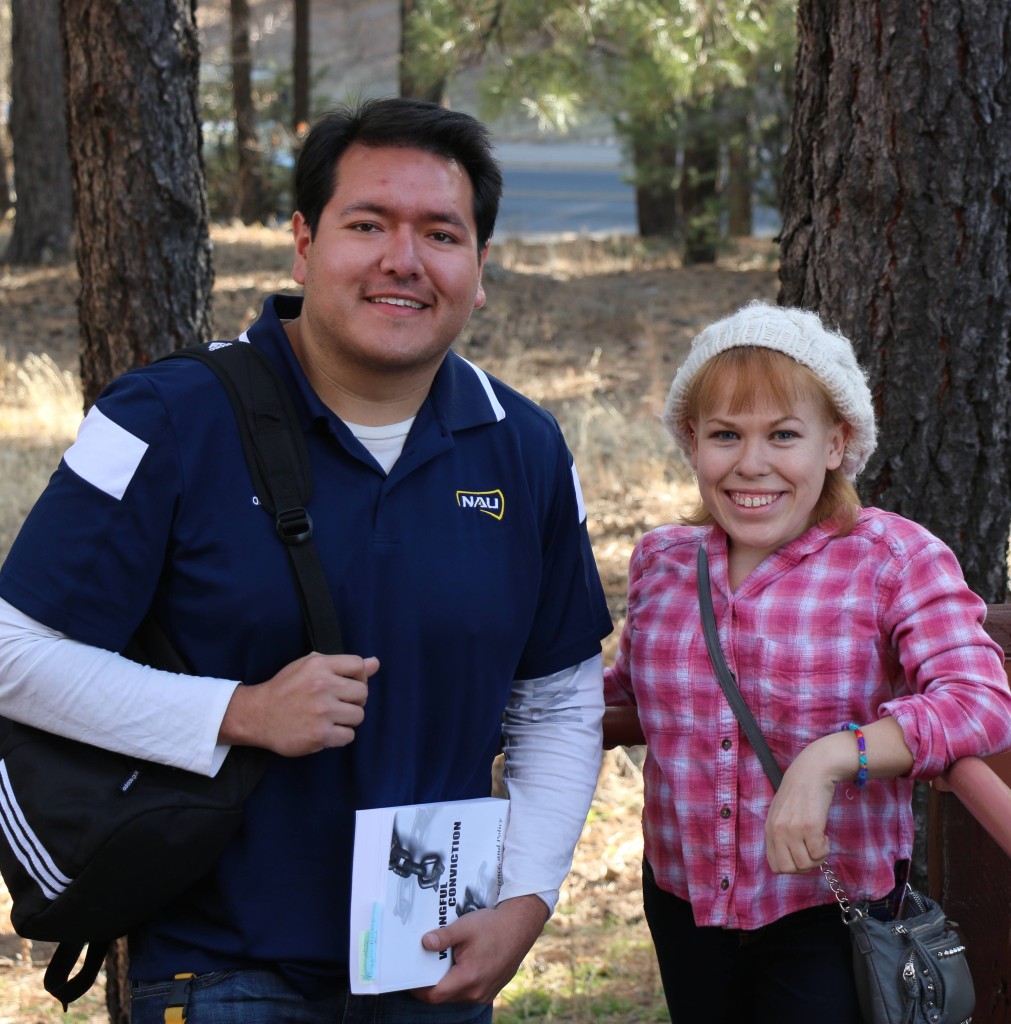For Corrine Jarnagin and Isaac Romero, sitting in the sun on a warm beach has lost its appeal in favor of a more altruistic spring break experience. They will join a group of fellow NAU students heading to southern Arizona to explore border issues and do volunteer work.
A growing number of students from colleges and universities across the country are choosing alternative spring breaks, service projects scheduled for the traditional weeklong school break in March.
Jarnagin, an elementary education major with an English-as-a-second-language emphasis, has traveled to Argentina, Ecuador and numerous other destinations doing service work. “I think it is important for us as individuals to stand for something and you learn many great skills for life,” said Jarnagin, who thinks more students would participate if they understood that the trips were fun and valuable.
“People like giving up their free time to be a servant leader and an active citizen,” said Elisabeth Sims of NAU’s Civic Service Institute. During the past four years she has worked to expand NAU’s alternative spring break offerings and oversees the Alternative Break Club of which Janagin is president.
This year’s alternative breaks, sponsored by NAU’s Civic Service Institute’s Project Give, include the southern Arizona border trip, an NAU Centennial forest trip focused on environmental stewardship and a Grand Canyon trip with an emphasis on volunteerism within the national parks and fire prevention.
Another alternative spring break option is a stay at Kane Ranch near the Vermillion Cliffs in far northern Arizona. The no-cost trip, organized by Honors lecturer Robyn Martin, will include time spent repairing riparian areas.
“In the Honors College, we are trying to help our students leave college as more global citizens. To help them understand global issues, we have to get them off campus to an amazing field classroom,” Martin said. The issues facing land managers at Kane Ranch including loss of ecosystems and diversity, desertification and decreasing water supplies are similar to many global concerns, Martin added.
With spring break about a month away, Romero, a prelaw major, said he is looking forward to the experience and said he is glad to see the growing trend of alternative breaks.
“It is altruism. We are moving away from the idea that it is a break from school or a break from life and we are being more willing to help others,” Romero said.



